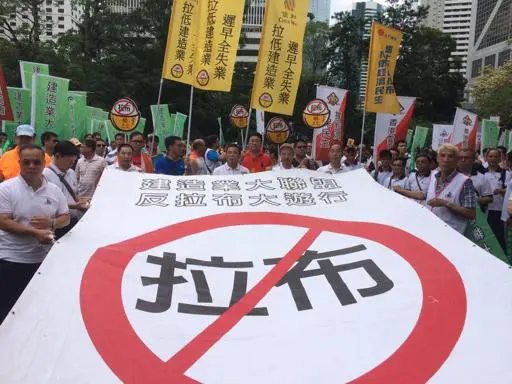Iraq declared a curfew in Baghdad on Monday as four people were killed and 277 injured in the fourth day of anti-government protests, and the coalition government's most powerful erstwhile supporter called for early elections.
Baghdad's top military commander imposed the curfew from midnight until 6 a.m. effective "until further notice," state television said, but protesters in the capital's central Tahrir Square remained defiant.
The curfew provides cover for security forces to clear the square, demonstrators said, but they intended on going nowhere.
The unrest, driven by discontent over economic hardship and deep-seated corruption, has broken nearly two years of relative stability in Iraq, which from 2003 to 2017 endured a foreign occupation, civil war, and an ISIL insurgency.
Three people were killed in Baghdad on Monday and 224 wounded. Security and medical sources said the deaths resulted from security forces launching tear gas canisters directly at the heads of protesters.
A fourth person was killed in the holy Shi'ite city of Karbala and 53 wounded, including six in critical condition, after police used live fire to disperse protesters, security and medical sources said. The cause of death was a bullet to the head, one medical source said.
Some 235 people have been killed overall in the disturbances this month.
Demonstrators run after Iraqi security forces fired tear gas during a protest over corruption, lack of jobs and poor services, Baghdad, Iraq, October 28, 2019. /VCG Photo
Populist Shi'ite cleric Moqtada al-Sadr, who backs parliament's largest bloc and helped bring Abdul Mahdi's fragile coalition government to power, called for early elections shortly after the curfew was announced.
"Abdul Mahdi must go to the parliament and announce early elections to be overseen by the United Nations," Sadr said in a statement. He also called on existing political parties not to run.
Mass street protests in Baghdad and other cities in the south flared at the start of the month and resumed on Friday after a pause of about two weeks.
Thousands of protesters gathered in Tahrir Square on Sunday, defying a bloody crackdown that had killed scores over the previous two days, and an overnight raid by security forces seeking to disperse them.
OPEC member Iraq boasts abundant oil reserves, but many Iraqis live in poverty or have limited access to clean water, electricity, basic healthcare and education. The country is still struggling to recover from years of conflict since 2003.
Iraqis blame a political elite they say is subservient to one or another of Baghdad's two main allies, the U.S. and Iran. Many suspect these powers use Iraq as a proxy to pursue their struggle for regional influence, without concern for the needs of ordinary people.
Fragile government
Security forces fired tear gas to disperse demonstrators in Baghdad, Iraq, October 28, 2019. /VCG Photo
Parliament passed measures on Monday aimed at placating the protesters but many said this was too little too late.
The measures included reduced salaries for officials, the formation of a committee tasked with drafting constitutional amendments within four months, and the dissolution of all provincial and local councils outside the semi-autonomous Kurdistan Region of Iraq.
Despite promising reforms and ordering a broad reshuffle of the cabinet, Abdul Mahdi has so far struggled to address the demonstrators' complaints.
Political alliances backing his ruling coalition have begun to fracture, with Sadr's bloc saying on Saturday it would go into opposition until protesters' demands were met.
The Saeroon bloc, an alliance of Sadr's followers, communists and other parties, is the largest in Iraq's fragmented parliament with 54 seats out of 329.
Abdul Mahdi warned on Thursday that any collapse of the government would drag Iraq into deeper turmoil.
(Cover: Iraqi demonstrators at Tahrir Square during ongoing anti-government demonstrations, Baghdad, Iraq, October 28, 2019. /VCG Photo)
(CGTN)
 简体中文
简体中文

